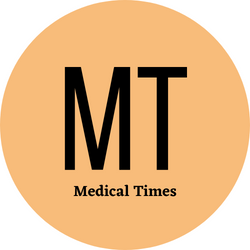Why is Health So Important
by siteadmin

Health is a state of complete physical, mental and social well-being. It is not just the absence of disease or infirmity, but a life that has meaning and purpose.
Modern authorities define health as a resource that supports an individual's function in society. A healthy lifestyle provides this resource.
Physical Health
The health of your body is an essential part of your life. A healthy body helps you feel good, stay at a healthy weight and have the energy for work and play.
Physical health includes everything from being physically fit to having a healthy diet. It also means noticing and identifying symptoms of illness or disease, and seeking medical care when needed.
It is important to keep your physical health in good shape because it reduces your risk of chronic diseases, such as diabetes and heart disease. Regular exercise also has been linked to improved mood and mental health.
Keeping up with your physical health can help prevent depression, anxiety, stress and other serious mental illnesses. It can also help you live a longer and more fulfilling life.
Mental Health
Excellent mental health is key to emotions, thinking, learning, communication, resilience, hope and self-esteem. It is also fundamental to relationships, personal and emotional well-being, and contributing to society or community.
It also boosts work performance, income and financial security. A healthy mind and body helps people to cope with everyday stress, anxiety and depression.
The World Health Organization (WHO) estimates that poor mental health affects over 450 million people worldwide. This is a serious burden that requires strong action to prevent, promote and treat.
Despite the progress in understanding and treating mental disorders, stigma still remains a major barrier to seeking treatment. This is due to public and institutional stereotypes, as well as self-stigma.
Social Health
While physical and mental health are a major part of comprehensive health education, social health is also a crucial component of your students’ well-being. Research shows that people who have strong relationships tend to live longer, have healthier endocrine systems, respond more effectively to stress and are generally happier than those with weaker connections.
It’s important to remember that social health is not about the number of friends you have, but instead how connected and involved you are in your relationships. For example, someone who spends a lot of time on their own and only has one or two friends can feel as socially connected as someone who is constantly out and about.
A person who understands that they have a responsibility to the community and society and participates in a variety of activities is a socially healthy individual. They are open to ideas, efforts and experiences that can help them grow continually. This can be achieved by focusing on their communication skills, empathy, social capital and social integration.
Spiritual Health
Spiritual health is an important part of your overall well-being. It can help you deal with stress, loss, illness, life transitions and other problems that may occur in your day-to-day life.
Many people find that meditation, prayer and yoga are helpful in maintaining spiritual wellness. Other spiritual activities include spending time in nature, volunteering and participating in a religion or faith community.
A person with good spiritual health often displays hope, a positive outlook, forgiveness and self-acceptance, commitment, meaning and purpose, clear values, feelings of peace, and an active relationship with others.
A healthy person with good spiritual health can live a long, productive and happy life. It also helps them cope with life-altering events, such as the death of a loved one. It may also help them manage their emotions, make decisions and develop relationships. It can increase their longevity and reduce the risk of depression, suicide and substance abuse.
Health is a state of complete physical, mental and social well-being. It is not just the absence of disease or infirmity, but a life that has meaning and purpose. Modern authorities define health as a resource that supports an individual's function in society. A healthy lifestyle provides this resource. Physical Health The health of your…
